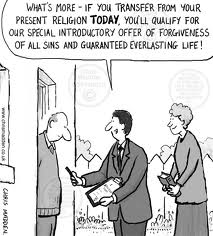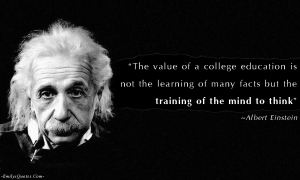 I was pleased to see that an important lecture which was given at the ICSA Washington conference last July on cults and the law by Alan Scheflin has been put on You-Tube. My readers may not want to spend 37 minutes watching it in its entirety but it is worth-while, I feel, giving some account of its content, in that it affects the concerns of this blog.
I was pleased to see that an important lecture which was given at the ICSA Washington conference last July on cults and the law by Alan Scheflin has been put on You-Tube. My readers may not want to spend 37 minutes watching it in its entirety but it is worth-while, I feel, giving some account of its content, in that it affects the concerns of this blog.
The issue that has bothered all those who seek to help those affected negatively by religious groups is whether they have any recourse in law. It is in fact not easy to persuade a judge that an individual has been emotionally, sexually or financially exploited by a religious leader because the individual concerned can be said, arguably, to have made an adult choice to join the group. The law apparently will always assume, unless it can be argued strongly to the contrary, that we always preserve our adult reasoning and thus are free to make irrational or foolish decisions if we so wish. There is no such thing in law as brain washing or mind-control, concepts that have been popular in the popular imagination when talking about extreme religious groups for some decades.
The one area of law that has proved to be relevant to judgements connected with religious groups is the notion of ‘undue influence.’ The law in most countries recognises the potential power of a religious leader to coerce an individual to change a will in favour of the group, particularly when in the last stage of life. This state of vulnerability when dying, is seen to be potentially a situation when a person’s free choice is compromised. Thus any pressure exercised in this context by a religious leader, can make the testator’s decision inadmissable if it is challenged by other parties. Cases connected with this issue of the disposal of an individual’s assets after death have been heard for the past 300 years. But the definition of ‘undue influence’ still remains elusive, especially when attempts are made to suggest that this idea could be applied to another area, that of an individual in full health submitting to the unequal power relationship which we associate with high demand religious groups.
The California Supreme court defined ‘undue influence’ as ‘pressure directly brought to bear on the testamentary act sufficient to frustrate the testator’s free will, amounting to coercion destroying the testator’s free energy.’ The writer on cults, Margaret Singer, wrote that virtually anyone can be ‘unduly influenced if the influences and techniques used against them are powerful enough’. Another American court ruling of 80 years ago in a will case agreed with this, by saying that ‘soundness of mind and body does not imply immunity from undue influence’. These statements appear to recognise that undue influence arguments could be applied not just to financial cases concerning wills, but could apply in other areas, such as financial or emotional exploitation .
There is clearly a line to be drawn between an adult making a free decision and someone who is coerced into an action that would go against their better judgement. The problem is where that line should be drawn. The law will always find it difficult to judge in this area because it has to deal with opinions about a situation and not definite facts. But the law needs to find that point where a reasonable person is able to say to him or herself, you can’t treat people like that. Legal protection should be able to operate in places where abusive treatment of individuals is proved to have taken place as the result of coercive behaviour.
In America one area of protection afforded to religion, good and bad, is the First Amendment which gives freedom of religious expression to all. This has made it extremely difficult to challenge anything that happens in religious institutions, even when, from a common-sense perspective, it is abusive. To take an extreme example which few would argue against, would anyone claim to bring forward the First Amendment in favour of the Boko-Haram kidnappers of the Nigerian schoolgirls. Should no one attempt to rescue the kidnapped Nigerian schoolgirls, who were shown reciting the Koran, on the grounds that they had changed their religion? Their rescue would surely be considered an act of liberation, whatever the words of faith uttered by those girls in the bush. Common sense would suggest that coercion is being applied. Although most of them are children and presumably have some protection in law, no one would seriously argue that those over 18 had had any real choice in the religion that was being forced on them.
The lecture by Professor Scheflin then went to review some the new theories and categories in social psychology and in the study of social influence. This material may make it possible for the courts soon to be able to admit new forms of expert testimony in cases connected with cults etc. One powerful argument that suggests that this development may not be far away is that there are some new social evils in society that need dealing with definitively from a legal perspective. For example we have the horrifying fanatical events in the so-called Islamic State and the growing recognition that the so called ‘grooming’ of children by adults is a phenomenon that happens in situations which sometimes involve adults. This was exemplified in the recent case of the Marxist cult in London and also in the widespread incidence of human trafficking. In each of these examples we have the grotesque abuse of power which involves ‘undue influence’ of a kind which does not involve money. We may soon see the term ‘brain washing’ re-enter the courts and legal arguments as a valid category. This time it will be a concept backed up by a new academic and expert rigour which make it robust enough and able to stand up to the scrutiny of legal dissection.
The lecture is important because it shows how the legal world is slowly moving towards the possibility of protecting some of the abused individuals who are the concern of this blog. The common sense arguments that readily identify certain places as being dangerous for the mental and emotional well-being of individuals have not hitherto been backed by the law of any country in the world. That may soon change as the research of social psychologists and researchers on the concept of social influence refine their methods and show, beyond all reasonable doubt, the mechanisms by which the strong can manipulate for malign purposes those who are weaker. The time when those abused by religious organisations can easily have their day in the courts of our land will be a day of great rejoicing. May it come soon.






